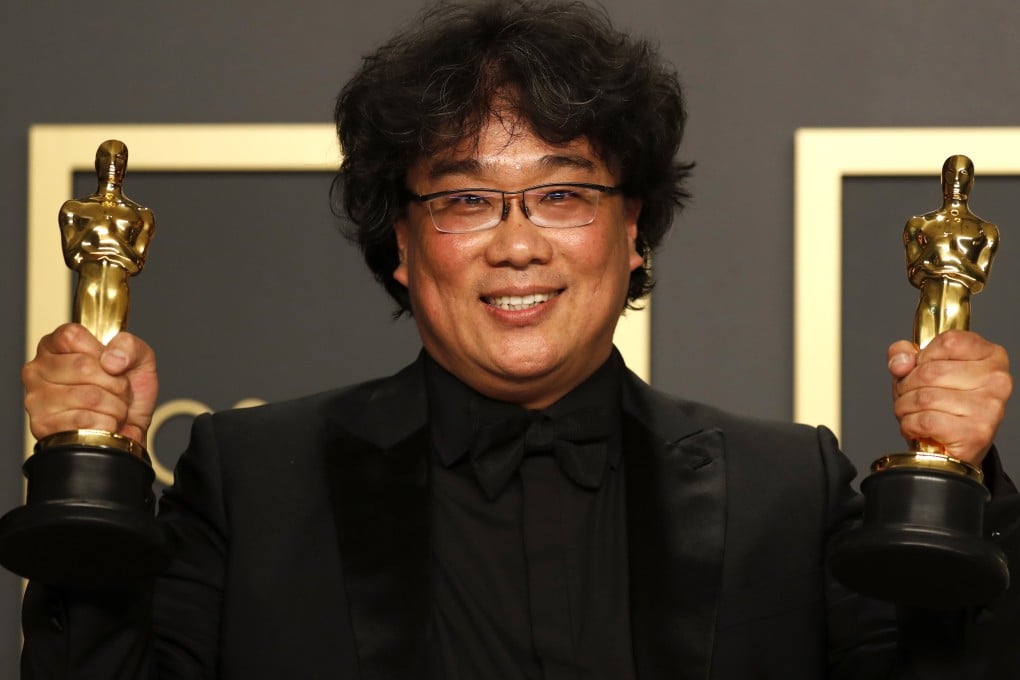Parasite makes history at Oscars and South Korean fans join Bong Joon-ho in celebrating
- The film offers a withering critique of South Korean society’s growing inequality, striking a chord with a younger generation of audiences
- Fans also welcomed greater representation for Asian artists on the international stage after Hollywood has been criticised for lack of diversity

Parasite, a satirical take on the widening gap between South Korea’s rich and poor, overcame what Bong’s described as the “one-inch barrier of subtitles”, which the director said had in the past dissuaded English-speaking audiences from discovering foreign films. According to Chosun, South Korea’s biggest newspaper, the win for Parasite “rewrote the Academy’s 92-year-old history”.
Bong’s win for Best Original Screenplay was the first Oscar for South Korea’s film industry. Parasite then won Best International Feature Film before Bong claimed the award for Best Director – then finally the top award for Best Picture.
“I’m ready to drink tonight,” Bong said during his acceptance speech after winning Best International Feature Film.
Backstage, he added: “It’s such a great honour. I feel like I’ll wake up to find it’s all a dream. It all feels very surreal.”
South Korean film fans also took to social media to celebrate.